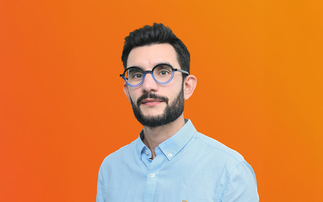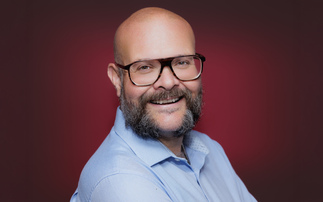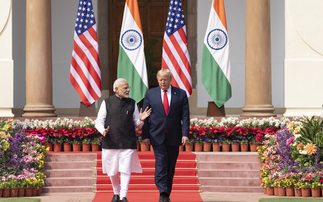
As interest in sustainable investment has grown, there has also been an increased focus from investors looking to drive positive change by directing capital to address the world's most pressing ESG issues. However, defining positive contribution is often difficult and involves a degree of subjectivity. It is also hard for sustainable investors to objectively measure the positive impact they are making through their stock selection.
This is where the UN's SDGs come in. Launched in 2015, the 17 SDGs each relate to an area where significant progress is required to deliver a sustainable and prosperous future for all people and the planet by 2030. These cover, for example, eliminating poverty and hunger, the shift to affordable, clean energy and climate action. In 2017, the UN added 169 underlying targets to the goals which include quantifiable measures to track progress.

With this level of granularity, the SDGs provide a powerful lens through which to identify stocks benefitting from long-term structural growth trends, as well as measuring the positive impact a sustainable fund manager is achieving. They bring much-needed clarity and data-driven analysis to an otherwise qualitative endeavour.
Improving the investment process
We use the SDGs primarily to enhance our investment process. The goals help us identify the stocks with attractive growth outlooks. In our view, companies that directly address the targets and aims of the SDGs are more likely to see growing demand for their products and services and therefore benefit from attractive growth opportunities over the coming decades.
The SDGs not only help us identify the best companies, they also help us to avoid the worst. By aligning to the SDGs, we are naturally drawn away from companies facing product obsolescence risk over the long-term, such as coal miners and fossil-fuel companies. Companies that adopt the SDGs are less likely to be caught in corporate misconduct issues such as discrimination, bribery and emissions scandals. As a direct consequence of investing in companies embracing the SDGs, we believe we minimise our exposure to such risks.
With our extensive team of sector and ESG experts on the ground around the world, as well as our proprietary ESG ratings, Fidelity is uniquely positioned to pick the companies best placed to provide the solutions to help achieve the SDGs. At the same time, the focus is also on identifying companies with all the key financial attributes and valuation profile required to make a successful investment.
Compelling opportunities
Translating the SDGs to compelling investments gives us the opportunity to contribute to addressing some of the biggest environmental and social challenges, while also achieving positive financial returns. Below we highlight a few of these stocks that we hold in the Fidelity Sustainable Global Equity Fund.
Advanced Drainage Systems (ADS) is the global market leader in products that capture, store and treat rainwater. Whilst it may not sound particularly glamorous, ADS plays a very important role in making sure that our buildings, roads and agriculture stay safe (SDG 9) and use water efficiently (SDG 6).
In the past, these products were made from concrete, however ADS' plastic pipes offer many important advantages; they are much better for the environment (producing plastic pipe has a much lower carbon footprint and uses recycled plastic), they can be installed 3x faster and cost 20% less, aligning the company closely to SDGs 12 and 13. This explains why plastic pipes have taken a 35% market share over the last three decades. We think there is still a long way to go which translates into many years of strong growth ahead for ADS.
ADS also demonstrates all the qualities of an exceptional business. It has a 70% market share, making it 10x larger than the next biggest player. This means it can reinvest far more than its competitors back into the business, allowing it to continue to innovate and improve its manufacturing capacity and costs, whilst generating best-in-class margins and cash flows.
Bank Rakyat is one of the largest state-controlled banks in Indonesia and provides saving, lending, insurance and payment services. It is the largest microfinance provider in the country, where two thirds of adults don't have access to formal financial services.
Over half of Bank Rakyat's loans are provided to low-income individuals and small and medium-sized enterprises. As a result, the bank is contributing to deeper financial inclusion (SDG 8), improved access for micro, small and medium enterprises (SDG 9) and gender equality (SDG 5) through its ultra-micro ecosystem. This offers greater access to more affordable financing for approximately 45 million micro and ultra-micro businesses that play a crucial role in supporting Indonesia's economy.
We believe the long-term growth opportunity is attractive because of Indonesia's low bank penetration and low domestic credit to GDP relative to neighbouring countries. Over the past decade, Bank Rakyat's strength in micro-finance has enabled it to outgrow the market as millions of low-income individuals accessed banking for the first time. The bank should be able to maintain double digit loan growth and an attractive return on equity for many years to come.
Sartorius Stedim is a global health care equipment supplier which provides the essential equipment used to produce innovative drugs and vaccines (including Covid-19 vaccines). The company is the global leader in single-use technology which allows these innovative, life-saving biologic medicines to be produced at faster speeds, with lower costs and reduced environmental impact (SDG 3).
Single-use technology allows the same drugs to be made with 90-95% less water and chemical waste and 30% less electricity than the traditional stainless-steel method which still accounts for c.75% of the market (SDG 12). Thanks to these benefits, the market is growing at rate of around 15%, with Sartorius Stedim well placed thanks to its market-leading technology.
Long-lasting change
The UN estimates the annual cost for meeting the SDGs globally is in the US$5trn−$7trn range1 . However, actual funding falls far short of that figure, equating to an annual gap of $2.5trn2 , with developing nations accounting for most of the deficit. For companies like ADS, Bank Rakyat and Sartorius Stedim, which are directly addressing the challenges encapsulated by the SDGs, this figure represents a large potential revenue opportunity, rather than an incremental cost. This gives us confidence that the growth opportunities ahead for companies aligned to the SDGs are stronger than ever.
Private capital will be critical in addressing the funding shortfall. We believe that the investment community has a vital role to play in allocating this capital toward companies that have the potential to make a positive difference, whilst also generating attractive financial returns.
By embracing and integrating the SDG framework in the Fidelity Sustainable Global Equity Fund, we strongly believe that our investors are well positioned to enjoy capital growth over time and help drive positive and enduring societal and environmental change.
1 Investors and the Sustainable Development Goals | Thought leadership | PRI (unpri.org)
This post is funded by Fidelity International
Important information
This content is for investment professionals only and should not be relied upon by private investors.
The value of investments can go down as well as up and clients may not get back the amount invested. Investors should note that the views expressed may no longer be current and may have already been acted upon. Reference to specific securities should not be interpreted as a recommendation to buy or sell these securities, but is included for the purposes of illustration only. Changes in currency exchange rates may affect the value of an investment in overseas markets. Investments in emerging markets can be more volatile than other more developed markets. The Fidelity Sustainable Global Equity Fund has the potential of having high volatility either due to its composition or portfolio management techniques. It can also use financial derivative instruments for investment purposes, which may expose it to a higher degree of risk and can cause investments to experience larger than average price fluctuations. A focus on securities of companies which maintain strong environmental, social and governance ("ESG") credentials may result in a return that at times compares unfavourably to similar products without such focus. No representation nor warranty is made with respect to the fairness, accuracy or completeness of such credentials. The status of a security's ESG credentials can change over time. Issued by Financial Administration Services Limited and FIL Pensions Management, authorised and regulated by the Financial Conduct Authority. Fidelity, Fidelity International, the Fidelity International logo and F symbol are trademarks of FIL Limited. UKM0922/371870/SSO/NA











